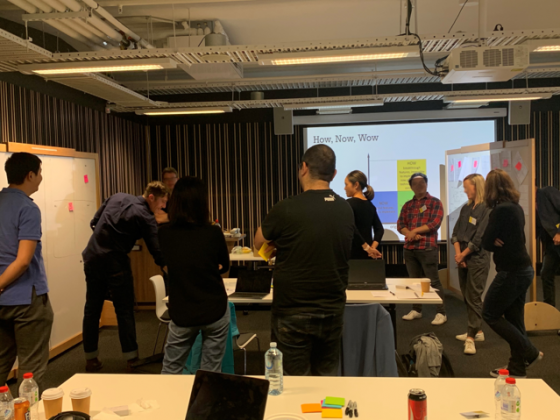What is UNOVA?
UNSW UNOVA is an exciting new UNSW initiative that aims to bring research, design and digital solutions together. The UNOVA team has previously worked on projects to address crisis management, fostering women’s entrepreneurship and sustainability. It was founded by Dr Felix Tan, a senior lecturer at UNSW Business who has worked extensively on digital solutions and their application in the development and equity space. As well as drawing on the research work of those at and beyond UNSW, the UNOVA team partner with the private sector to deliver prototype and solutions oriented project management. One key project for UNOVA has been their work on empowerment and digital entrepreneurship, demonstrating how digital and technological solutions can contribute to meaningful social outcomes.
What is digital entrepreneurship and why is it important?
Digital entrepreneurship enables many businesses to operate on the internet; allowing buying and selling to occur without investment in physical premises. This opens up many opportunities for those where geographic, social and financial access to physical premises may limit economic opportunities. For example, small communities in highland regions are often geographically isolated and may experience access barriers to finding adequate commercial premises in local areas. Digital entrepreneurship is, fundamentally, an opportunity for financially inclusive empowerment in communities. UNOVA collaborators have authored a paper that explores digital entrepreneurship as emancipatory which explores social constraints and digital enablement required to foster digitally enabled entrepreneurship.
What activities have UNOVA pursued so far?
In 2020, a team of UNOVA collaborators were awarded funding from the Australia-ASEAN Council of the Department of Foreign Affairs and Trade to deliver a series of workshops focussed on the role of women in digital entrepreneurship and the opportunities that these women could present for communities. “Many small business ventures with the right training and support are using mobile phones to take their small stores online. In some areas, local governments note women account for up to 80% of new entrepreneurs,” Dr Felix Tan commented.
Case studies of existing digital programs in farming communities across ASEAN countries demonstrate the effect of e-commerce, the current state of women’s digital entrepreneurship initiatives, and examples of small sized businesses using digital entrepreneurship in West Java and South Sulawesi of Indonesia. The video below, featuring UNOVA collaborator Dr Amelia Fauzia, explains some of the research outcomes from those case studies and interviews women entrepreneurs on their experiences.
UNSW UNOVA has also developed a series of short courses (Skills@UNOVA) to help people maximise their potential and develop skills to meet challenges in a rapidly changing digital economy, regardless of their starting points. UNOVA Short courses include Digital Thinking Fundamentals, Business Analytics, ERP and SaaS, Cyber Security Risk, Blockchain and Cryptocurrencies. These short courses are available to both UNSW staff and external participants. The next Skills@UNOVA short course will be on Blockchain and Cryptocurencies in June.
Building on our industry and education partnerships, UNOVA supports the industry education program in Information Systems Courses. The industry education program has been a series of partner-led student-run technology project initiatives in collaboration with industry partners and supported by UNSW’s Work-Integrated-Learning and Career Accelerator teams. This initiative provides UNSW Business School students with professional industry engagement opportunities through project work in courses including INFS2621 and INFS2631.
Who are your current partners? Are you looking for any support?
We currently are working with partners on a range of digital solutions. These include development of proof of concepts and platforms for:
- Crisis management
- Software Defined Networks
- Sustainability Leadership
- Impact sourcing
- Digital Health
- Digital Entrepreneurship
We are constantly working with our industry partners to identify and apply for competitive grant funding to realise their ambitions in digital transformation. Some project themes and opportunities include technologies for sustainability leadership, technology enabled women and community empowerment, financial inclusion and smart cities. Potential funders includes Australian Research Council, NSW Business, Department of Foreign Affairs and Trade.
